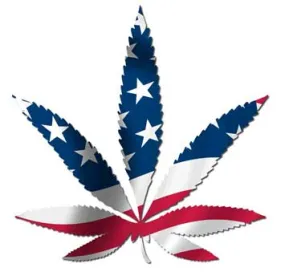The U.S. Supreme Court denied a motion filed by the states of Nebraska and Oklahoma for leave to file a complaint against the state of Colorado, challenging that State’s legalization of marijuana. The Supreme Court denied the motion without opinion or explanation on March 21, 2016.
In December 2014, Nebraska and Oklahoma moved for leave to file a complaint against Colorado, arguing that Colorado’s legalization of marijuana was unconstitutional. They contended, among other things, that the state’s marijuana legalization program violated the federal Controlled Substances Act, which makes the cultivation, trafficking and possession of marijuana unlawful and that federal law is controlling under the U.S. Constitution. They further argued that Colorado’s “legal” marijuana flowed into their neighboring states, creating a variety of law enforcement problems. Nebraska and Oklahoma invoked a rarely used constitutional provision giving the High Court original jurisdiction over suits between states. They sought a declaration that the Colorado legalization program was unconstitutional.
Justices Thomas and Alito filed a dissenting opinion from the denial of the motion for leave to file a complaint. Writing the dissent, Justice Thomas stated that the Supreme Court has original jurisdiction over controversies between States and that federal law does not give the Court discretion to decline cases within its original jurisdiction, even though the Court has long exercised such discretion. Finding that the Court’s discretionary approach to exercising original jurisdiction was “questionable,” and because the plaintiff States made a reasonable case that the dispute fell within the Court’s original jurisdiction, Justice Thomas stated that he would have granted the plaintiff States leave to file the complaint.
It appears, however, that litigation between these States still is possible. Nebraska Attorney General Doug Peterson stated that “the Supreme Court has not held that Colorado’s unconstitutional facilitation of marijuana industrialization is legal and the court’s decision does not bar additional challenges to Colorado’s scheme in federal district court.”
On the federal level, it is now up to Congress to decide the federal government’s position with regard to marijuana. The Compassionate Access, Research Expansion, and Respect States (CARERS) Act of 2015 – which seeks to downgrade marijuana from a Schedule I to a Schedule II drug (among other things) — has languished in committee since March 2015.




 />i
/>i

